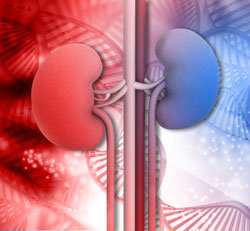
People can help prevent kidney stones by making changes in fluid intake and, depending on the type of kidney stone, changes in consumption of sodium, animal protein, calcium, and oxalate. Drinking enough fluids each day is the best way to help prevent most types of kidney stones. Health care providers recommend that a person drink 2 to 3 liters of fluid a day. People with cystine stones may need to drink even more. Though water is best, other fluids may also help prevent kidney stones, such as citrus drinks.
